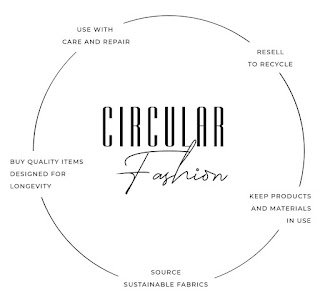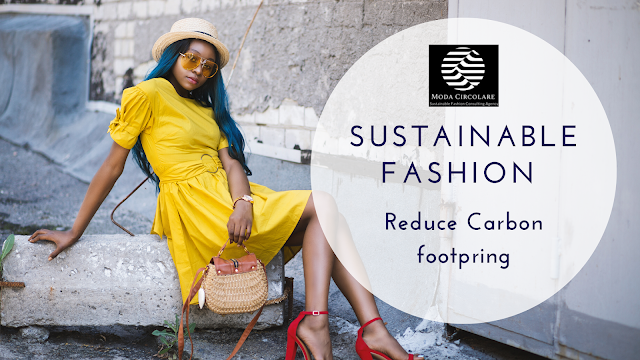Circular & Sustainable Fashion: Spreading Green Fashion in the world
To find out what Circular & Sustainable Fashion is, let's
first review how the fashion industry has worked forever. The production of
most of the garments we keep in our wardrobe is far from environmentally
friendly.
For its manufacture, non-renewable resources are extracted that will be
dumped into production circuits, which will result in a garment that will be
used for a season and then discarded.
This is what is called fast fashion or Circular & Sustainable
Fashion; an unmeasured model of clothing that is not always necessary. They
are garments that are valid on the catwalks only for a short time and that will
fall into disuse long before their service life ends.
According to some studies, 80 million garments are sold in Spain alone
each year, while a single Spaniard throws away 7 kilos of clothing in the same
period. In view of these figures – which are even more alarming if they
multiply in all the countries of the world – the so-called circular fashion
emerges.
It is a sustainable proposal and Sustainable fashion strategy that
seeks to rethink the present and future of fashion and the entire textile
industry. What is it? What are its benefits? In the next space, we detail
everything about it.
What is circular
fashion and why is it characterized?
Circular & Sustainable Fashion frames a much more ambitious and far-reaching project known as the Ellen Macarthur Foundation is a foundation that is betting on this alternative sustainable economic model, which is gaining more and more adherents. Circular Fashion follows a Sustainable fashion strategy.
What are the
benefits of circular fashion?
We want to highlight some of the benefits of entering the world of
circular fashion. Whether economic, social, or personal, they all represent a
positive contribution to ecosystem health.
We acquire garments
of excellent quality
For a garment to be part of circular fashion, it must be designed,
designed, and produced to last much longer than conventional garments. This
should take into account, above all, raw material and production cycles. The
garments produced by the Sustainable fashion strategy are of exceptional
quality.
We contribute to
sustainable production
While the materials used are natural, your process should not generate
contamination. In addition, they must be returned and recycled without
environmental damage. Examples of these processes and materials are organic
cotton, renewable energy, etc. When we buy such a garment we are investing in
the future of the environment.
Reduced pollution
levels
Not only because we don't throw away clothes we no longer wear, but
because these garments are made according to environmentally friendly
practices, as we mentioned above.
Now connect with Moda Circolare to know more about Circular &
Sustainable Fashion.



Moda Circolare is an established organization of theSustainable Fashion Consulting Agency in Canada, Vancouver and British Columbia.
ReplyDeleteThank You!!